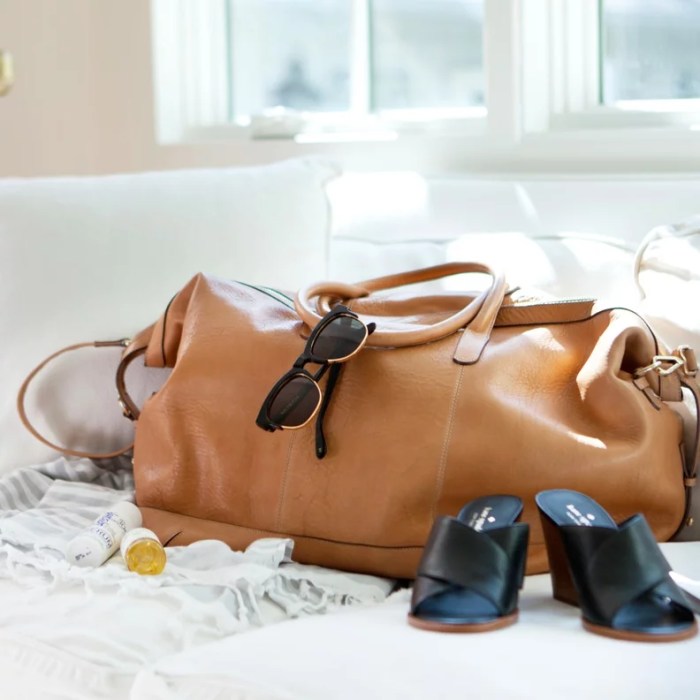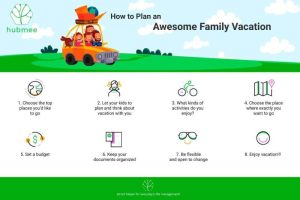
Traveling light isn’t just about convenience; it’s about saving money and reducing stress. Luggage fees can quickly eat into your travel budget, and hauling around an oversized suitcase can be exhausting. This guide provides practical, effective strategies to maximize your packing efficiency, minimize your luggage size, and ultimately, avoid those pesky baggage fees. We’ll explore space-saving techniques, smart packing strategies, and helpful tips to ensure a smoother, more affordable travel experience.
From mastering the art of rolling your clothes to utilizing often-overlooked spaces within your luggage, we’ll cover a range of methods designed to help you pack smarter, not harder. We’ll also delve into the baggage policies of major airlines, offering practical advice on how to navigate their restrictions and ensure your luggage remains within the permitted limits. This guide is your ultimate resource for stress-free packing and cost-effective travel.
Avoiding Baggage Fees
Airline baggage fees can significantly impact your travel budget. Understanding airline policies and employing smart packing strategies are crucial for avoiding these unexpected costs. This section will explore various methods to minimize or eliminate baggage fees, ensuring a smoother and more affordable travel experience.
Airline Baggage Policies: A Comparison
Airline baggage policies vary considerably. Let’s compare three major airlines: Southwest Airlines, Delta Air Lines, and Ryanair. Southwest Airlines generally offers two checked bags free of charge for domestic flights, but size and weight restrictions still apply. Delta Air Lines, on the other hand, typically charges for checked bags, with prices varying based on the route and booking class.
Ryanair, a budget European airline, has a strict baggage policy, charging heavily for both checked and carry-on bags exceeding their size and weight limits. These differences highlight the importance of checking your specific airline’s policy before your trip. Failure to comply can result in substantial on-the-spot fees.
Weighing Luggage at Home Without a Scale
Accurately weighing your luggage beforehand prevents unexpected fees at the airport. Here are five methods for estimating luggage weight at home without a traditional scale:
Accurate pre-trip weighing is vital to avoid costly baggage fees at the airport. The following methods provide reasonable estimates of your luggage weight:
- Using a bathroom scale: Step on the bathroom scale holding your bag. Subtract your weight from the total weight to determine the bag’s weight.
- Using a postal scale: If you have access to a postal scale, you can weigh your luggage directly. Many post offices offer this service.
- Comparing to known weights: Compare the weight of your bag to items with known weights, such as bags of flour or rice. This provides a rough estimate.
- Using a sturdy chair and a measuring tape: Place the bag on a sturdy chair and measure its dimensions. Use online luggage weight calculators (many are available) that utilize dimensions to estimate weight.
- Feel and experience: If you have experience traveling, you can often get a reasonable estimate by lifting and judging the weight of your luggage. This method is less precise but improves with experience.
Packing a Carry-On Bag Strategically
Packing strategically for carry-on luggage can eliminate checked baggage fees entirely. Follow these steps:
Careful planning is essential to maximize space and minimize weight when packing a carry-on bag. This step-by-step guide ensures you stay within airline limits and avoid extra charges.
- Create a packing list: Before you start packing, make a list of everything you need. This helps you avoid overpacking.
- Choose versatile clothing: Select clothing items that can be mixed and matched to create multiple outfits. Neutral colors are particularly helpful.
- Roll, don’t fold: Rolling your clothes saves space and minimizes wrinkles.
- Use packing cubes: Packing cubes help organize your clothes and compress them into smaller spaces.
- Utilize empty spaces: Stuff socks and underwear into shoes and other small gaps to maximize space utilization.
- Wear your bulkiest items: Wear your heaviest and largest items, such as boots and a jacket, on the plane to reduce weight in your carry-on.
Measuring Luggage Dimensions
Accurately measuring your luggage is crucial to ensure it meets airline size restrictions. Use a tape measure to find the length, width, and height of your bag. Measure from the outermost point in each direction, including wheels and handles. Airlines often specify maximum dimensions for carry-on and checked baggage. Comparing your measurements to these airline specifications will help you avoid fees for oversized luggage.
Remember to always check the specific regulations of your chosen airline, as dimensions can vary.
Travel Hacks for Efficient Packing

Efficient packing is crucial for stress-free travel, allowing you to maximize space and minimize baggage fees. By employing smart strategies and utilizing readily available items, you can significantly reduce the bulk of your luggage while ensuring you have everything you need. This section will Artikel practical techniques for minimizing toiletries, utilizing essential accessories, repurposing everyday items, and identifying items best left at home.
Minimizing Toiletries
Travel-sized containers and multi-use products are key to reducing the volume of toiletries. Instead of packing full-sized bottles of shampoo, conditioner, and body wash, opt for travel-sized versions or decant your favorite products into reusable, leak-proof containers. Consider purchasing solid toiletries, such as shampoo bars and conditioner bars, which eliminate the need for liquid containers altogether. Furthermore, using multi-purpose products, such as a tinted moisturizer that acts as both sunscreen and foundation, or a cleansing balm that removes makeup and cleanses the skin, can greatly reduce the number of individual items needed.
These strategies significantly reduce weight and space in your luggage.
Essential Travel Accessories for Efficient Packing
Several essential travel accessories can dramatically improve packing efficiency and organization. A packing cube set allows for compartmentalization of clothing and items, preventing wrinkles and maximizing space utilization. Compression bags further reduce the volume of clothing by squeezing out excess air. A lightweight, foldable travel backpack serves as a versatile carry-on for day trips or as an additional storage option.
A portable electronic scale ensures you remain within airline baggage weight restrictions, avoiding costly fees at the airport. Finally, a toiletry bag with multiple compartments keeps your toiletries organized and prevents spills.
Repurposing Everyday Items for Packing
Everyday items can be surprisingly useful for packing. Shower caps protect shoes from soiling clothing; their waterproof nature keeps shoes separate from clean clothes. Plastic bags are useful for separating dirty laundry from clean clothes, preventing cross-contamination. Ziploc bags can be used to store small items like jewelry, preventing tangling and loss. A laundry bag made from a mesh bag or a repurposed pillowcase can separate dirty clothes from clean ones.
Using these common items strategically saves space and enhances organization.
Items to Avoid Packing
Packing unnecessary or easily replaceable items wastes valuable space and adds unnecessary weight to your luggage. Avoid packing bulky guidebooks, as digital versions are readily accessible on smartphones or tablets. Leave behind excess pairs of shoes; two pairs should suffice for most trips. Limit the number of outfits you pack; choose versatile clothing items that can be mixed and matched.
Avoid packing unnecessary jewelry; stick to a few essential pieces. Skip bringing bulky hair styling tools; most hotels provide basic hair dryers. By avoiding these items, you’ll have more space for essentials and souvenirs.
Travel Insurance
Travel insurance is a crucial aspect of trip planning, offering financial protection against unforeseen circumstances that can disrupt your journey and strain your finances. Choosing the right policy can provide peace of mind, knowing you’re covered in case of emergencies or unexpected events. Understanding the different types of coverage and key factors in selecting a policy is vital for a worry-free travel experience.
Types of Travel Insurance Coverage
Travel insurance policies vary widely in the types of coverage they offer. Common types include trip cancellation or interruption insurance, which reimburses you for prepaid, non-refundable expenses if your trip is cancelled or cut short due to covered reasons (such as illness, severe weather, or family emergencies). Medical expense coverage is another important aspect, providing financial assistance for medical treatment, hospitalization, and emergency medical evacuation.
Baggage insurance covers loss, theft, or damage to your luggage and its contents. Some policies also offer coverage for other issues such as flight delays, missed connections, and personal liability. The specific benefits offered will vary depending on the policy and the insurer.
Key Factors to Consider When Choosing a Travel Insurance Policy
Selecting the right travel insurance policy requires careful consideration of several key factors. Firstly, assess the level of coverage needed based on your trip’s specifics. A trip to a remote location with limited medical facilities would require a policy with more extensive medical coverage than a short trip to a major city. Secondly, carefully compare the premiums and deductibles offered by different insurers.
While a higher premium may offer more comprehensive coverage, it’s important to find a balance that suits your budget and risk tolerance. Finally, check the insurer’s reputation and customer service ratings. Reading reviews from other travelers can provide valuable insights into the claims process and overall customer experience.
Reviewing Policy Terms and Conditions
Before purchasing any travel insurance policy, it’s absolutely crucial to thoroughly review the terms and conditions. Pay close attention to the definitions of covered events, exclusions, limitations, and the claims process. Understanding what is and isn’t covered will help you make an informed decision and avoid potential disappointments later. For instance, pre-existing medical conditions are often excluded, so it’s important to check if your policy covers any pre-existing conditions you may have.
Failure to carefully review the policy can lead to denied claims if an event occurs that isn’t explicitly covered under the terms.
Travel Insurance Claim Process
The claim process for travel insurance typically involves several steps. In the event of an emergency or unexpected event, you must first report the incident to the insurer as soon as possible, often within a specified timeframe Artikeld in your policy. You will then need to gather necessary documentation to support your claim, such as medical bills, police reports, or flight cancellation confirmations.
The insurer will review your claim and supporting documentation to determine eligibility for reimbursement. The time it takes to process a claim can vary depending on the insurer and the complexity of the situation. Maintaining clear communication with the insurer throughout the process is essential to ensure a smooth and efficient claim resolution.
Additional Travel Tips and Resources
Planning a trip involves more than just packing efficiently and avoiding baggage fees. Thorough preparation, utilizing helpful resources, and prioritizing safety and well-being are crucial for a smooth and enjoyable travel experience. This section provides additional tips and resources to enhance your trip planning.
Reliable Travel Planning Tools and Resources
Several websites and apps offer invaluable tools for planning your trip, from finding flights and accommodations to discovering local attractions and navigating unfamiliar cities. Utilizing these resources can save you time, money, and stress.
- Google Flights: This powerful search engine allows you to compare flight prices across multiple airlines and track price changes over time, helping you find the best deals.
- Booking.com: A comprehensive platform for booking hotels, apartments, and other accommodations worldwide, offering a wide range of options and user reviews.
- Skyscanner: Similar to Google Flights, Skyscanner compares flight prices from various airlines and travel agencies, providing a broad overview of available options.
- TripAdvisor: A vast resource for finding travel recommendations, including hotels, restaurants, activities, and attractions, based on user reviews and ratings.
- Rome2rio: This app helps you plan multi-modal transportation, showing various options for getting from point A to point B, including flights, trains, buses, and even ferries.
The Importance of Obtaining Necessary Travel Visas and Documents
Securing necessary travel visas and documents well in advance is paramount to avoid delays and potential complications. Visa requirements vary greatly depending on your citizenship and destination country. Failure to obtain the correct documentation can result in being denied entry or facing significant delays at the border. It’s crucial to check the specific visa requirements for your destination country well in advance of your trip, allowing ample time for the application process, which can often take several weeks or even months.
Always keep copies of your passport, visa, travel insurance information, and other important documents both digitally and physically in separate locations.
Booking Flights and Accommodations in Advance
Booking flights and accommodations in advance offers significant advantages, primarily securing better deals and ensuring availability. Airlines and hotels often offer lower prices for bookings made well in advance, particularly during peak travel seasons. Furthermore, booking early ensures you have a wider selection of flights and accommodations to choose from, allowing you to select the options that best suit your needs and budget.
Last-minute bookings frequently result in higher prices and limited availability.
Practical Tips for Staying Safe and Healthy While Traveling
Prioritizing safety and health is essential during travel. Taking proactive measures can significantly reduce risks and ensure a more enjoyable trip.
- Register with your embassy or consulate: This allows your government to contact you in case of emergencies.
- Make copies of important documents: Keep copies of your passport, visa, and other crucial documents separate from the originals.
- Be aware of your surroundings: Stay vigilant and avoid walking alone in poorly lit or isolated areas, especially at night.
- Practice good hygiene: Wash your hands frequently, stay hydrated, and eat at reputable establishments to minimize the risk of illness.
- Consult your doctor about necessary vaccinations and medications: Depending on your destination, certain vaccinations and medications may be recommended or required.
Urban Escapes

Urban escapes offer a fantastic opportunity to recharge and explore different cultures without the commitment of a longer trip. A well-planned weekend getaway can be incredibly rewarding, allowing you to immerse yourself in a new environment and create lasting memories. Careful consideration of transportation, accommodation, and activities is key to maximizing your enjoyment and minimizing stress.
Five Exciting Urban Destinations for a Weekend Getaway
Choosing the right destination is crucial for a successful urban escape. These five cities offer diverse experiences and are easily navigable within a short timeframe:
- Amsterdam, Netherlands: Known for its canals, charming architecture, and vibrant cultural scene.
- Seville, Spain: A city brimming with flamenco, tapas, and stunning historical landmarks.
- Kyoto, Japan: A beautiful blend of traditional temples, serene gardens, and modern amenities.
- Quebec City, Canada: A charming city with European flair, offering a unique blend of French and North American culture.
- Portland, Oregon, USA: A city known for its thriving food scene, independent shops, and beautiful natural surroundings.
Three-Day Itinerary: Exploring Seville, Spain
This itinerary focuses on experiencing the essence of Seville in just three days:
- Day 1: Explore the Alcázar of Seville, a stunning royal palace showcasing Moorish architecture. In the afternoon, wander through the charming Santa Cruz neighborhood, with its narrow streets and orange trees. Enjoy tapas at a local bar in the evening.
- Day 2: Visit the Seville Cathedral, the largest Gothic cathedral in the world, and climb the Giralda, its iconic bell tower, for panoramic city views. In the afternoon, experience a traditional flamenco show. Enjoy dinner at a restaurant along the Guadalquivir River.
- Day 3: Explore the Plaza de España, a magnificent square built for the Ibero-American Exposition of 1929. Visit the Metropol Parasol, a modern wooden structure offering unique city views. Spend the afternoon shopping for souvenirs before departing.
Public versus Private Transportation in Urban Areas
The choice between public and private transportation depends on individual preferences and the specific city. Public transportation, such as buses, subways, and trams, is generally more affordable and environmentally friendly. However, it can be less convenient, especially during peak hours or in areas with limited service. Private transportation, such as taxis or ride-sharing services, offers greater flexibility and convenience but comes at a higher cost and may contribute to traffic congestion.
Exploring the Unique Character of the Marais District in Paris
The Marais district in Paris is a fascinating neighborhood known for its rich history, trendy boutiques, and diverse cultural scene. Its narrow, cobblestone streets are lined with historic buildings, art galleries, and charming cafes. The area is a melting pot of cultures, with a significant Jewish community and a vibrant LGBTQ+ scene. Walking through the Marais is like stepping back in time while simultaneously experiencing the pulse of modern Parisian life.
The juxtaposition of ancient architecture with contemporary art galleries and trendy shops creates a unique and captivating atmosphere. The district’s historical significance, combined with its modern energy, makes it a truly unforgettable experience.
Vacation Packages and Programs
Planning a vacation can be exciting, but also overwhelming. The choice between booking a pre-packaged vacation or crafting your own itinerary presents a significant decision point, each offering distinct advantages and disadvantages. Understanding these differences is crucial for a stress-free and enjoyable trip.Pre-packaged vacations and independently planned trips represent two contrasting approaches to travel. Pre-packaged vacations, often sold by travel agencies or online platforms, bundle together flights, accommodation, and sometimes activities or excursions.
Independent travel, conversely, involves booking each element separately, offering greater flexibility but requiring more planning and research.
Comparing Pre-packaged Vacations and Independent Travel
Pre-packaged vacations offer convenience and often cost savings through bundled deals. The planning is handled by a third party, reducing the stress of coordinating multiple bookings. However, they may lack flexibility, limiting your choices in terms of accommodation, activities, and travel dates. Independent travel provides significantly more control and customization. You choose every aspect of your trip, from the flight times to the type of accommodation, allowing for a truly personalized experience.
However, it requires more time and effort to research and book each component individually, potentially increasing the overall cost if not managed carefully.
Key Factors When Choosing a Vacation Package
Three crucial factors to consider when selecting a vacation package are budget, desired level of activity, and travel style. Budget dictates the range of packages available, with all-inclusive options often being more expensive but offering better value for money in some cases. The desired level of activity influences the choice between a relaxing beach vacation or an action-packed adventure tour.
Finally, travel style, whether it be luxurious, budget-friendly, or adventurous, helps narrow down the suitable options. For example, a family with young children might prioritize packages with kids’ clubs and family-friendly activities, while a couple seeking a romantic getaway might opt for a luxurious all-inclusive resort.
The Importance of Reviews and Price Comparisons
Reading reviews and comparing prices are essential steps before booking any vacation package. Reviews from past travelers provide valuable insights into the quality of accommodation, services, and overall experience. Websites like TripAdvisor and Booking.com offer extensive user reviews, helping you gauge the package’s true value. Comparing prices from different providers ensures you secure the best deal. Many comparison websites specialize in travel packages, allowing you to see various options side-by-side and identify potential savings.
Failing to compare prices and read reviews could lead to overspending or a disappointing vacation experience.
Advantages and Disadvantages of All-Inclusive Vacation Packages
All-inclusive vacation packages offer a convenient and predictable budgeting experience. The price covers accommodation, meals, drinks, and often activities, eliminating unexpected costs. This predictability is particularly appealing for families or those who prefer a hassle-free vacation. However, all-inclusive packages can be less flexible. You’re generally limited to the resort’s amenities and may not have the opportunity to explore local restaurants or attractions independently.
Furthermore, the quality of food and drinks may not always meet individual preferences, and the overall experience might feel somewhat restrictive compared to independent travel.
Venture Capital in the Travel Industry
The travel industry, a sector consistently demonstrating resilience and adaptability, has become a fertile ground for venture capital investment. Technological advancements, evolving consumer preferences, and the rise of the sharing economy have created numerous opportunities for innovative startups to disrupt traditional models and redefine the travel experience. This influx of capital fuels growth, innovation, and competition, ultimately benefiting both travelers and the industry as a whole.
Innovative Travel Startups Attracting Venture Capital
Venture capital firms are actively seeking out travel-related businesses with scalable models and strong potential for return on investment. Three examples of successful startups that have secured significant funding illustrate the diverse landscape of opportunities within the sector. These examples highlight the breadth of innovation, from optimizing logistics to enhancing the overall travel experience.
- Airbnb: This platform revolutionized the hospitality industry by connecting travelers with individuals offering short-term rentals. Its massive success, fueled by substantial venture capital, showcases the potential for disrupting traditional hotel models and catering to a growing preference for unique and personalized accommodations.
- TripAdvisor: While not strictly a startup anymore, TripAdvisor’s early success in securing venture capital allowed it to become the dominant player in the online travel review space. This highlights the importance of venture capital in building brand recognition and market dominance within the travel sector.
- BlaBlaCar: This ride-sharing platform connects drivers with empty seats to passengers traveling along similar routes, offering a cost-effective and environmentally conscious alternative to traditional transportation. Its success demonstrates the appeal of venture capital to sustainable and socially responsible travel solutions.
Current Trends and Opportunities Attracting Venture Capital Investment
Several key trends are currently driving venture capital investment in the travel industry. These trends reflect shifts in consumer behavior, technological advancements, and a growing focus on sustainability and personalization.
The rise of mobile-first travel booking, the increasing demand for personalized travel experiences, and the growing popularity of sustainable and responsible travel are all attracting significant investment. Furthermore, the integration of artificial intelligence and machine learning to optimize travel planning and enhance customer service is a major area of focus for venture capitalists. The development of innovative solutions for managing travel logistics, such as baggage tracking and personalized itinerary planning, also represents a significant investment opportunity.
The Role of Venture Capital in Fostering Innovation and Growth
Venture capital plays a crucial role in fostering innovation and growth within the travel sector. It provides the necessary financial resources for startups to develop and scale their products and services, allowing them to compete with established players and disrupt traditional business models. Furthermore, venture capitalists often bring valuable expertise and mentorship, guiding startups through the challenges of growth and expansion.
This support extends beyond financial investment, encompassing strategic guidance and network access, crucial for navigating the complexities of the travel industry.
Challenges Faced by Travel Startups Seeking Venture Capital Funding
Securing venture capital funding is not without its challenges for travel startups. Three key obstacles frequently encountered include:
- Demonstrating Scalability and Market Potential: Venture capitalists require evidence that a startup’s business model can be scaled to a significant market size and generate substantial returns. This often involves presenting robust financial projections and demonstrating a clear path to profitability.
- Competition from Established Players: The travel industry is characterized by large, well-established companies with significant market share. Startups need to differentiate themselves and demonstrate a clear competitive advantage to attract venture capital investment.
- Regulatory Hurdles and Compliance: The travel industry is subject to numerous regulations and compliance requirements, which can pose significant challenges for startups seeking to secure funding and operate successfully. Navigating these complexities requires expertise and resources, factors that need to be considered during the fundraising process.
Mastering the art of efficient packing is a game-changer for any traveler. By implementing the space-saving techniques and baggage fee avoidance strategies Artikeld in this guide, you can significantly reduce the hassle and expense associated with air travel. Remember, thoughtful planning and strategic packing are key to a seamless and enjoyable journey. So, pack smart, travel light, and focus on creating unforgettable memories, not worrying about extra baggage charges.
FAQ Section
What are the best ways to roll clothes for packing?
Roll clothes tightly, starting from one end and working your way to the other. This method saves space and minimizes wrinkles compared to folding.
Can I bring liquids in my carry-on?
Yes, but they must be in containers of 3.4 ounces (100ml) or less and fit inside a quart-sized, clear, resealable plastic bag.
What if my luggage is overweight at the airport?
Airlines charge fees for overweight baggage. You may need to remove items or pay the excess baggage fee at the airport. Consider repacking or shipping items home ahead of time.
How can I protect my clothes from getting wrinkled?
Use packing cubes or garment bags to protect clothes from wrinkles and maintain organization. Consider using wrinkle-release sprays.







